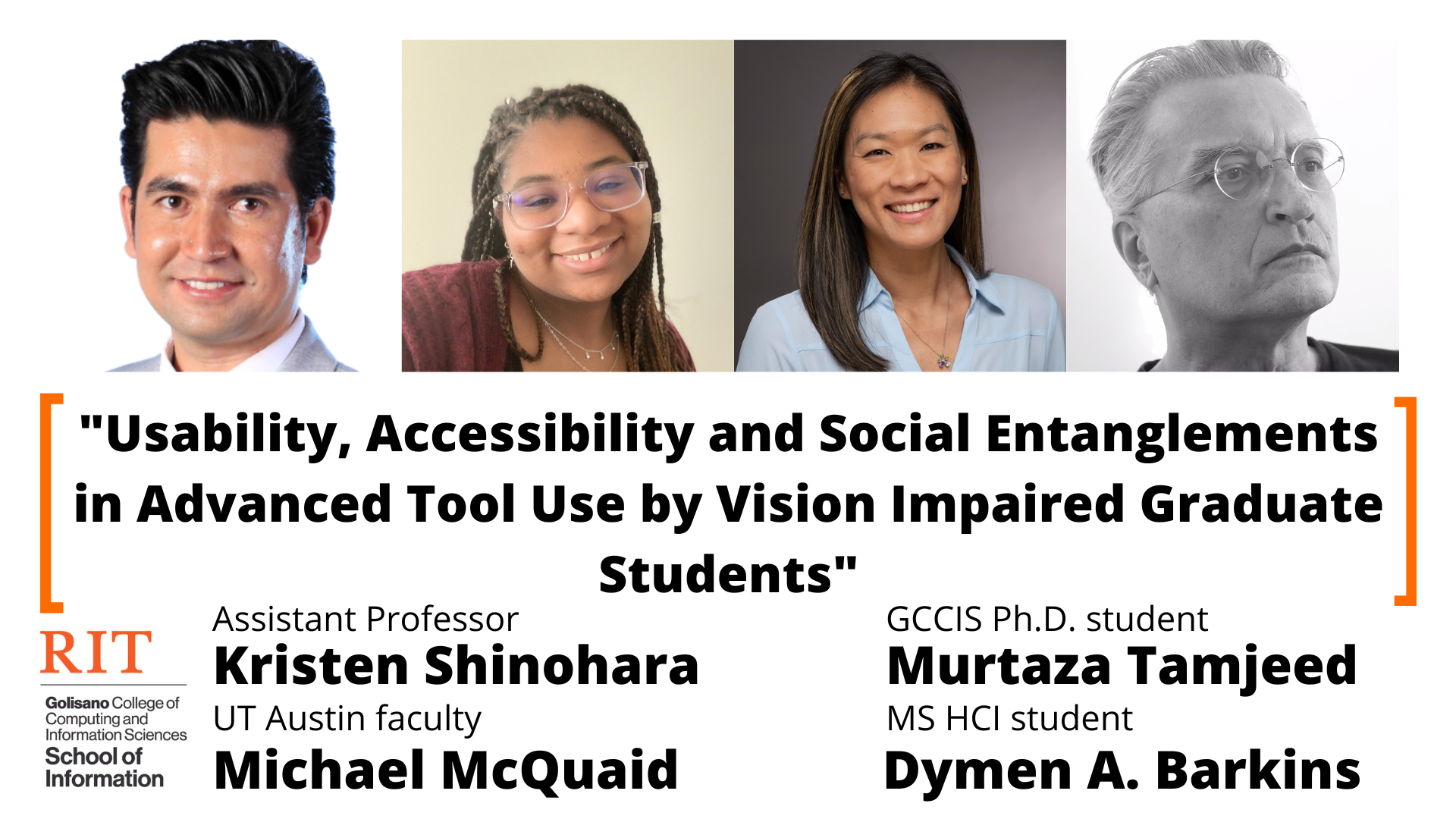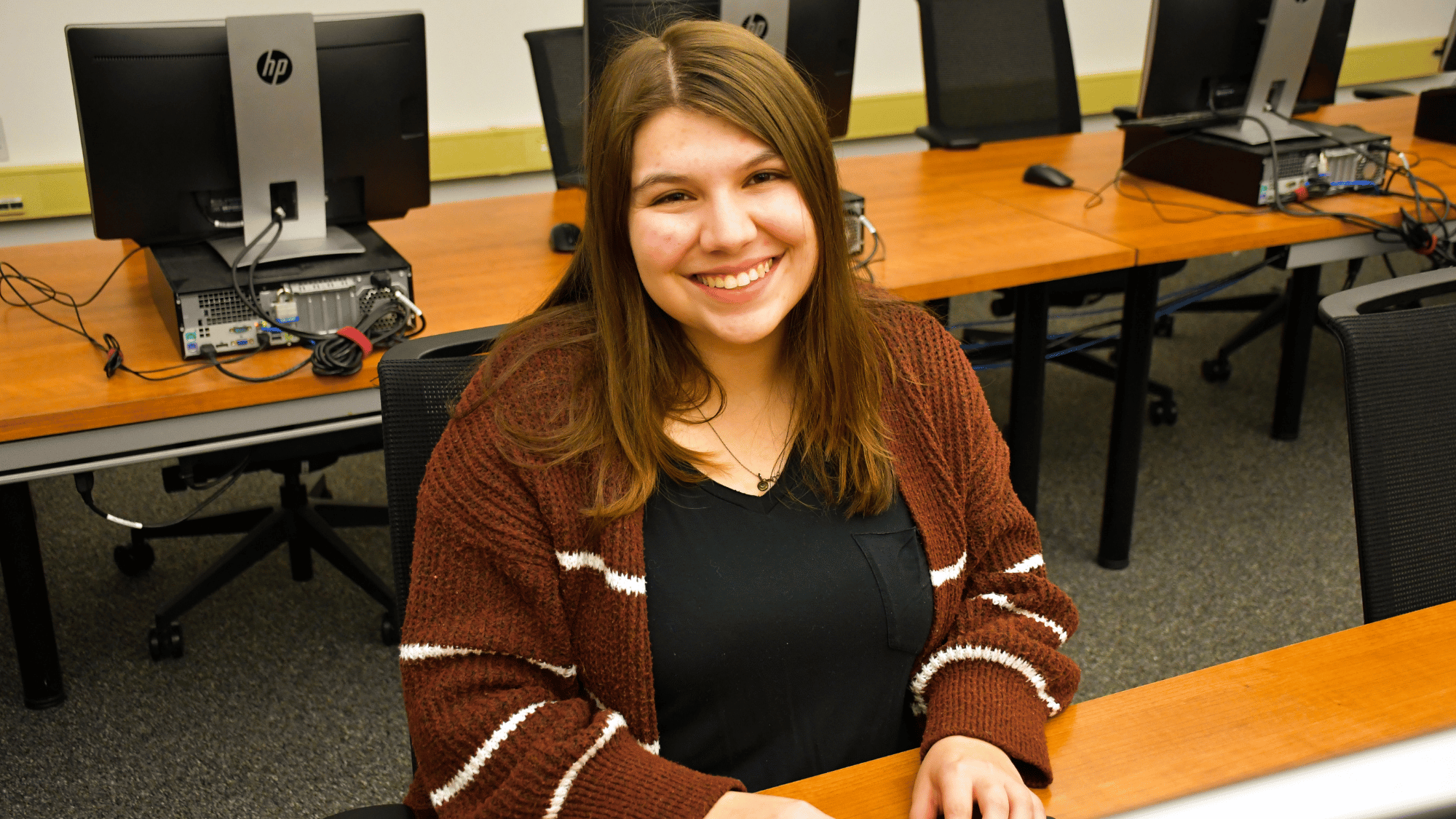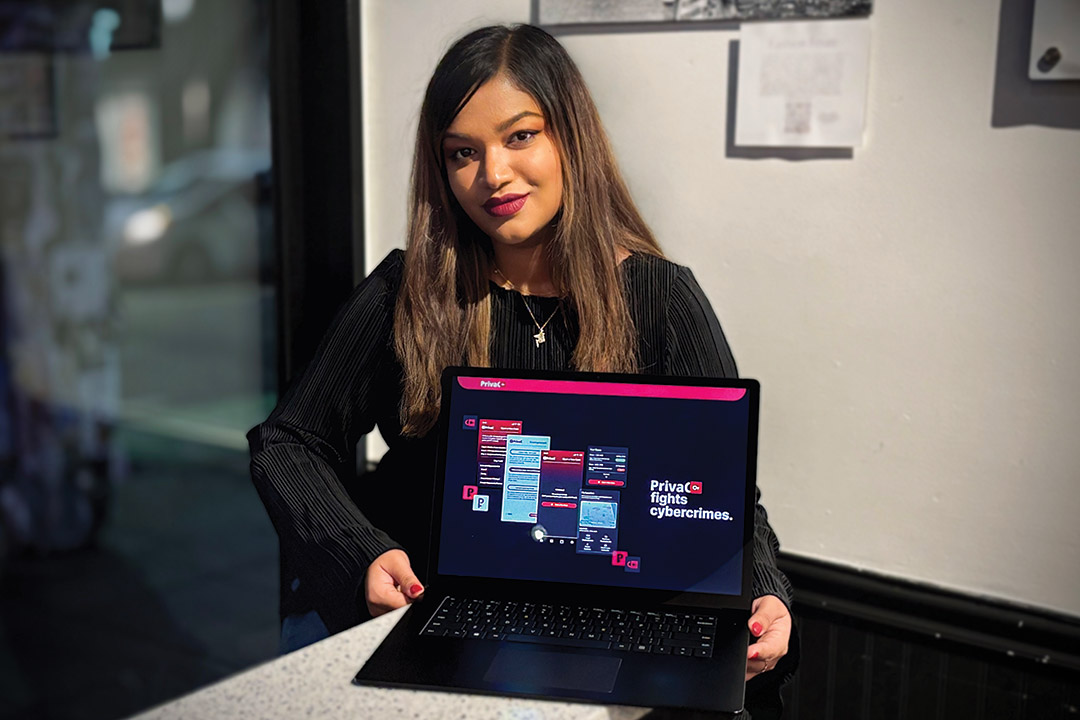Usability, Accessibility and Social Entanglements in Advanced Tool Use by Vision Impaired Graduate Students
iSchool Profs. Kristen Shinohara and Michael McQuaid (now at University of Texas, Austin), Ph.D. student Murtaza Tamjeed, and MS HCI student Dymen A, Barkins recently published “Usability, Accessibility, and Social Entanglements in Advanced Tool Use by Vision Impaired Graduate Students” at CSCW 2022.

iSchool Profs. Kristen Shinohara and Michael McQuaid (now at University of Texas, Austin), along with Ph.D. student Murtaza Tamjeed and MS Human-Computer Interaction student Dymen A. Barkins, recently published and presented “Usability, Accessibility and Social Entanglements in Advanced Tool Use by Vision Impaired Graduate Students“ at CSCW 2022. They investigated the accessibility of advanced technical tools for research used by blind and low vision computing scholars. They found advanced tools used for computing-related research, such as R, LaTeX, or Cygwin, were not accessible without additional accommodation. Further, workarounds sometimes invited additional challenges, such as decreasing the overall usability of a research task when ad-hoc tools were sourced and used or requiring human coordination, assistance, or collaboration. This work documents additional labor involved in the effort to use tools for advanced research tasks and shows that usability and human assistance may be complicated by inaccessible technologies used in high-level research.
Students with disabilities in higher education disparately experience inaccessibility in how they use and manage technologies and services compared with nondisabled students. Most of the time, despite systems and resources available to address access issues, access remains inequitable when solutions are inadequate or require overhead. This work by Shinohara and colleagues shows how barriers and workarounds experienced by blind and low vision doctoral students using advanced technical tools complicates research tasks. These barriers add time and effort and exacerbate social entanglements in collaborative relationships. This observation and interview study with eight current and former Ph.D. students contribute empirical data that demonstrates how the accessibility of advanced technical tools used in research influences productivity and collegial efforts.
The full research paper is available at https://dl.acm.org/doi/10.1145/3555609.











